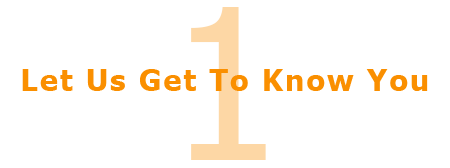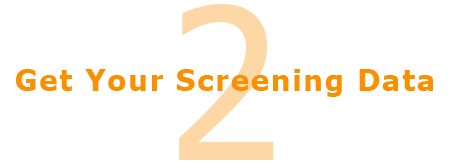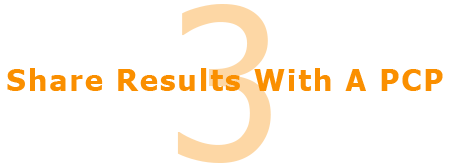Get Free Help & Preventive Care
What Is Healthcare? Let's Examine Its Definition.
According to this definition and others like it, the term 'healthcare' skews toward the Medical Care and Services industry through health services providers more than individual personal care or self-maintenance. Also, it omits pharmacists. Insurers currently do not classify pharmacists as providers, yet they spend enormous time assisting and educating countless patients. It's time to recognize the invaluable role of pharmacists in healthcare and redefine healthcare to include their contributions.
Current definitions collectively imply that an individual's preventive and proactive regimen, whether successful or not, is not acknowledged in healthcare. A clear emphasis exists that billable medical services are the only representation of legitimate healthcare. While these services fulfill valuable societal needs and are of great benefit, they are reactionary and rendered in response to adverse situations. This interpretation invokes a sincere desire and need to replace "health care" with the more applicable term of "repair care" or "disease care."
If the notion that healthcare needs redefining is too much to swallow or digest, then chew on the need for individuals to take a more proactive role in their healthcare. Ask yourself if healthcare should be reactive, proactive, or both. Should healthcare be redefined? We certainly think so and are making our concerted efforts to awaken healthcare to conscious individualized care of health.
"As they repair your HEALTH, hospitals provide CARE.
HEALTHCARE is your daily preventive and proactive regimen."
--- Larry Freeman, Synergy Saturday, Inc. and LAF Productions, Inc.
How Synergy Saturday Screenings Work
Every Saturday | 8 AM – 2 PM | Little Rock
Join Us for Free Health Screenings
Screen FreeAnswer a few demographic questions and screen for free to get your no-cost health check up, consultation, and personalized plan of preventive health care.
|
Get ResultsWe share what your numbers mean seconds after you screen. So, you will know your numbers to begin your value-enriched personalized preventative plan.
|
Share DataDownload our Know Your Numbers app to document your results and share them with your Primary Care Physician (PCP) or healthcare team's personnel.
|
|
|
|
|
|
Come As You Are, Leave Better
✅ No insurance or ID required ✅ Diabetes, Hypertension, and other screenings ✅ Connect with real doctors & patient navigators Take control of your wellness journey—download our Know Your Numbers app for health care today!
|
Why We Screen
Around 30% of adults in the United States have two or more chronic diseases. This prevalence tends to increase with age, and factors such as lifestyle and socioeconomic status play essential roles. Globally, trends can vary, but the issue of multimorbidity is becoming a growing concern in many health systems.
Chronic diseases and their associated risk factors cost U.S. employers an estimated $36 billion to $50 billion annually due to lost productivity and healthcare expenses. These costs include absenteeism, presenteeism (reduced productivity while at work), and increased healthcare premiums. The financial impact varies depending on the specific chronic conditions and the industry.
Chronic diseases and their risk factors reduce economic output by an estimated $1.1 trillion annually in the U.S. due to lost productivity from absenteeism and presenteeism. This estimate includes costs associated with employees missing workdays and being less productive. However, Synergy Saturday can significantly mitigate this economic impact through effective prevention and management strategies.
When people feel better, they perform better. Or, as we say, people do better as they feel better. Our objective is to help you achieve better health naturally and synergistically. Remember: health is wealth, and wealth is health. Good health is vital for obtaining, maintaining, and sustaining wealth! Our screenings are free, and your personalized health consultation is invaluable. By improving your health, we contribute to enhancing the overall economy, creating true legacy wealth.
Synergy Saturday's mission is to shift one's paradigm about preventive health care to create a culture of healthy attitudes and behaviors in participating communities.
Importance of Health Screenings and Our Preventative Services
Our complimentary health screenings have a minimum per-person value of $100; hence, a life is truly saved for every $100 raised! First, please review the following infographics for the importance of health screenings and preventative services for each topic. Then, review additional findings and information pertinent to your state if you are not an Arkansas residence.
"Medical care is expensive, wellness care is free."
--- Dee Edington, PhD., University of Michigan
Healthcare Infographics
Get Your Free Health Screening to Know Your Numbers
- Attend our Synergy Saturday event to get your free health screening, consultation, health education, risk assessments, etc.
- Educate yourself further through our Healthy Self Plus member page, Synergy Saturday SCOOP Blog , and our social media feeds of Facebook, Instagram and Twitter
Health screenings effectively catch diseases, illnesses, or potential causes in the earliest stages when treatment, an all-natural supplement, or a simple lifestyle change has its greatest chance for success. In addition, we empower our participants to know their numbers for the sake of their health and a healthy lifestyle.
Which day of the week? Our day is in our name. Don't meet us there ... beat us there. See you soon ... this Saturday.
|
Once you receive help in any capacity, pay it forward for someone else's opportunity for care.
|
Synergy Saturday: Empowering Health and Wellness Through Instant Access and Community Care
|
Synergy Saturday qualifies, quantifies, and enrolls eligible patients for much-needed intervention programs with our proprietary Koala-fication™ System, a play on words for a qualification system. Koalas have a highly developed sense of hearing and smell. Similarly, we pay close attention to our patients, listening carefully to their needs and concerns. Our app identifies and 'sniffs out' any eligible factors that may make them qualify for specific intervention programs. With their permission, we can enroll them in these programs to provide them with the help they need.
|
Intro to Food As Medicine (FAM)

FAM is based on the idea that certain foods contain unique compounds that can have a positive impact on the body and its functions. For example, fruits and vegetables are high in antioxidants, which can help reduce inflammation and prevent cell damage. Omega-3 fatty acids found in fish and nuts are known for their heart-healthy benefits, and probiotics in fermented foods can support gut health.
In addition to individual nutrients, FAM also promotes the consumption of whole, unprocessed foods and the avoidance of highly processed and sugary foods. The emphasis is on eating a variety of nutrient-dense foods that support overall health and reduce the risk of chronic diseases.
Food As Medicine is often used in conjunction with traditional medical treatments and can be particularly beneficial for managing conditions such as Type 2 diabetes, hypertension, heart disease, obesity, and digestive issues. It can also be used to support overall health and well-being, providing the body with the nutrients it needs to function optimally.
Overall, FAM encourages individuals to view food as a powerful tool for promoting health and preventing disease, and to make mindful choices about the foods they consume on a daily basis.
“When diet is wrong, medicine is of no use. When diet is correct, medicine is of no need.”
Ayurvedic proverb
The Need for Food As Medicine

Synergy Saturday is built on the belief that people do better as they feel better or simply thrive when they feel their best. Therefore, we are committed to combating food insecurity with a comprehensive Whole of Wellness (WOW) approach infused with compassion, dignity, and passion. We understand that food insecurity is not just a matter of hunger, but it is directly linked to poor mental and physical health, preventable chronic diseases, and is a visible manifestation of poverty. Our approach is designed to address the following interconnected issues and make a lasting impact on our community:
- A less-than-healthy diet cannot sustain health and adequate healing.
- Fluctuations in dietary intake create a chronic disease management challenge.
- A daily dilemma of choice between food purchases versus healthcare needs, such as prescription refills or preventive care.
Food As Medicine (FAM) is an approach to using food and nutrition to prevent and treat various health conditions. It involves using the natural healing properties of food to support overall health and well-being. FAM is based on the concept that the nutrients and compounds found in certain foods can have therapeutic effects on the body and may help in the prevention or management of diseases.
Some examples of the FAM approach include:
- Incorporating anti-inflammatory foods such as fruits, vegetables, and healthy fats to reduce inflammation in the body and support the immune system.
- Using specific foods and herbs to help manage conditions such as Type 2 diabetes, high blood pressure, and cholesterol levels.
- Including probiotic-rich foods like yogurt and kefir to support gut health and digestive function.
- Emphasizing a balanced diet rich in nutrients like vitamins, minerals, and antioxidants to support overall health and well-being.
While FAM can be a valuable complementary approach to traditional medical treatments, it's important to consult with a healthcare professional or registered dietitian before making significant changes to your diet, especially if you have a medical condition or are taking medication.
|
|
|
Breaking the Cycle: The Interdependence of Food As Medicine and Food Insecurity
- Food Insecurity and Health Outcomes: Food insecurity—when people lack consistent access to enough food for an active, healthy life—can contribute to poor health outcomes. However, there is hope. By improving the nutritional quality of people's diets, Food As Medicine programs, like ours, can significantly reduce the impact of food insecurity on health. These programs seek to address health disparities, particularly chronic diseases like diabetes, hypertension, and obesity, which poor-quality diets often exacerbate.
- Role of Food As Medicine Programs: These programs are crucial in providing access to healthy, nutritious food for individuals experiencing or at risk of food insecurity. They aim to prevent, manage, or treat chronic illnesses by promoting access to the right foods. In this way, Food As Medicine programs address health disparities and directly tackle the root cause of these disparities-food insecurity. The program's success relies on overcoming barriers contributing to food insecurity, like affordability and accessibility of healthy food.
- Interdependency: The relationship between Food As Medicine programs and food insecurity is not one-sided. Food insecurity can reduce the effectiveness of Food As Medicine programs if individuals need access to or cannot afford the nutritious food needed. Conversely, Food As Medicine programs can mitigate food insecurity over time by improving access to healthy food. This interdependency underscores the fact that addressing one issue requires addressing the other.
In conclusion, Food As Medicine programs are most effective when they account for and address food insecurity. The close link between these challenges in public health underscores the urgency of addressing both issues. The programs are interdependent in that the prevalence of food insecurity can impact the Food As Medicine program's success. In contrast, the FAM program can help alleviate food insecurity and its health consequences.
Our FAM program's focus is inclusive of the following:
- Food distribution at our clinic location
- Gift cards for patients to purchase healthy food
- Patient education (About how food impacts chronic diseases and implementation of FDA-approved meal programs, such as the DASH diet for Hypertension and the Diabetes Plate Method)
Best FAM Meal Plan Methods That Work
|
The DASH (Dietary Approaches to Stop Hypertension) diet plan helps people with hypertension to lower blood pressure and LDL (low-density lipoproteins), sometimes called the “bad” cholesterol. Its benefits also include:
Manage your blood sugar using the Diabetes Plate Method to create healthy meals. With this method, there's no need for calculating, counting, measuring, or weighing! The benefit is you can easily prepare meals with perfect portions and a balanced mix of carbohydrates, protein, and vegetables. Serve your meal on a plate and enjoy eating your way to wellness! |
|
Bariatric, Portion-Control, and Diabetes Plates
- Weight Management: Proper portion sizes can help control calorie intake, making maintaining or achieving a healthy weight easier.
- Nutritional Balance: Understanding portion sizes empowers you to take control of your diet, ensuring that you consume appropriate amounts of fruits, vegetables, proteins, and grains for a balanced diet.
- Prevention of Overeating: Portioning is a powerful tool for preventing overeating. Being mindful of portions can reduce the likelihood of overeating, which is linked to various health issues, including obesity, diabetes, and heart disease.
- Improved Digestion: Eating smaller, well-portioned meals can aid digestion and prevent discomfort associated with large meals.
- Mindful Eating: Portioning encourages a more conscious approach to eating, allowing you to savor your food and better recognize your body's hunger and fullness cues, leading to a profoundly satisfying eating experience.
- Budgeting: Proper portioning can help manage food costs by minimizing waste and encouraging the use of ingredients in a balanced way, giving you more control over your budget.
- Sustainability: By promoting appropriate portion sizes, meal planning can contribute to more sustainable food consumption patterns, reducing the environmental impact.
Overall, effective meal portioning supports both physical health and well-being. If abnormal (ABN) readings for hypertension or diabetes are discovered during our FREE health screening service, our patients get a FREE copy (while supplies last) of either plan or both to help manage their chronic illness. If a patient wants to prevent the onset of either chronic disease, these same meal plan methods apply and can be purchased on our online store.
Tariff-Proof Your Table with These Portion-Control Plates, Today!
🚶🏽➡️Move to Thrive: The Power of Daily Exercise
An ideal 30-minute routine can be simple yet effective:
- Start with 10 minutes of calisthenics like jumping jacks, squats, or arm circles to warm up your muscles.
- Follow with 10 minutes of brisk walking to raise your heart rate and improve circulation.
- Finish with 10 minutes of light jogging or faster-paced movement to build endurance and heart strength.
If walking or jogging isn’t an option for you, chair exercises like seated marches or arm raises are excellent low-impact alternatives that still offer health benefits.
💡 Pro Tip: Take a 15-minute walk after every meal—especially lunch and dinner. Studies show this simple habit can help lower post-meal blood sugar and support better diabetes management.
Whether you’re just starting out or continuing your wellness journey, consistent movement is key to a longer, healthier life. You don’t need a gym—just commitment. Let's get moving! 💪
|
|
|
🩺 Wellness Tip: Stay Hydrated Daily
Did you know? You hydrate for today by drinking water yesterday. Your body needs time to absorb and distribute fluids, so staying ahead is key! 💦 That’s why we hydrate the day before activity and replenish today to keep energy, focus, and wellness on track.
Stay ready—don’t wait until you’re thirsty!
#HydrateSmart #WellnessTip #SynergySaturday
✅ Why It Matters:
Water is essential for every cell in your body. It helps you think clearly, digest food, keep your energy up, and maintain healthy blood pressure.
💧 During a Meal:
- Drinking small sips of water can aid digestion by helping break down food and absorb nutrients.
- It helps prevent overeating by promoting a feeling of fullness.
💧 After a Meal:
- Drinking water after eating helps complete the digestive process and keeps you hydrated.
- It's especially helpful after a fiber-rich or high-protein meal to aid nutrient absorption and waste elimination.
🚫 A Word of Caution:
- Avoid large amounts of water immediately before or during meals, as this may dilute digestive enzymes and slightly impair digestion.
- For people with certain digestive disorders (e.g., acid reflux), drinking too much during meals might worsen symptoms.
✅ Best Practice:
- Take small sips with your meal.
- Drink a full glass of water about 30 minutes after eating for optimal digestion and hydration.
💧Hydration Reminder
Water is the ONLY beverage that truly hydrates.
Sports drinks, juice, soda, and even coffee can’t replace what pure water does for your body. That’s why we teach: hydrate the day before and replenish today to stay ahead of dehydration and support your overall health.
Make water your daily wellness partner—for energy, focus, and longevity. 💚🧡
#OnlyWaterHydrates #HydrationMatters #SynergySaturday
Quick Tip:
Drink 6–8 cups of water daily—and even more if you're exercising or spending time in the heat.
💡 Small sips throughout the day go a long way. Keep a water bottle handy!
|
|
💧 Why Daily Hydration?
Water fuels your body—literally! Staying hydrated supports your energy, digestion, brain function, and even heart health. Just a few cups short can leave you feeling tired, foggy, or sluggish. Aim for 6–8 cups a day, and more when you're active or it's hot. Your body will thank you! |
How Coffee Consumption Supports Digestive Health

- Gut Health and Digestion: Lawsonibacter asaccharolyticus is believed to significantly impact the digestion of complex carbohydrates, particularly in environments where other bacteria may not be as efficient. Its potential to break down specific molecules that other gut microbes can't could significantly improve digestion, a fascinating area for further exploration.
- Microbial Balance: Lawsonibacter asaccharolyticus, like many other microbes in the gut, may play a crucial role in maintaining the overall balance of the microbiota. Its potential to contribute to a more diverse microbial ecosystem, often associated with better health outcomes, including improved immunity and reduced inflammation, offers a hopeful perspective on its health benefits.
- Production of Short-Chain Fatty Acids (SCFAs): Many gut bacteria produce short-chain fatty acids (SCFAs) like butyrate, acetate, and propionate, which are beneficial for gut health. SCFAs support gut lining integrity, reduce inflammation, and serve as an energy source for colonocytes (cells in the colon). While it's not definitively proven for L. asaccharolyticus, many bacteria with similar characteristics are involved in SCFA production, which could be a potential benefit.
- Immune System Modulation: Lawsonibacter asaccharolyticus, by contributing to the overall microbiome, may play a significant role in modulating immune responses. Its potential to help regulate the immune system, potentially lowering the risk of autoimmune conditions and enhancing the body's ability to fight infections, offers a reassuring perspective on its potential benefits.
- Protection Against Pathogenic Microbes: Some beneficial gut bacteria, including those like Lawsonibacter asaccharolyticus, may help inhibit the growth of harmful or pathogenic microbes by competing for space and nutrients, producing antimicrobial substances, or modulating immune responses.
Manghi P, Bhosle A, Wang K, Marconi R, Selma-Royo M, Ricci L, Asnicar F, Golzato D, Ma W, Hang D, Thompson KN, Franzosa EA, Nabinejad A, Tamburini S, Rimm EB, Garrett WS, Sun Q, Chan AT, Valles-Colomer M, Arumugam M, Bermingham KM, Giordano F, Davies R, Hadjigeorgiou G, Wolf J, Strowig T, Berry SE, Huttenhower C, Spector TD, Segata N, Song M. Coffee consumption is associated with intestinal Lawsonibacter asaccharolyticus abundance and prevalence across multiple cohorts. Nat Microbiol. 2024 Nov 18. doi: 10.1038/s41564-024-01858-9. Epub ahead of print. PMID: 39558133.
Coffee to Reduce Risk of Type 2 Diabetes?: a Systematic Review
The review included 13 cohort studies, 47,387 participants, and 9,473 type 2 diabetes incident cases. We compared the risk of diabetes amongst people with different degrees of coffee consumption. We concluded that habitual coffee consumption is associated with a lower risk of type 2 diabetes.
Participants who drank 4 to 6 cups and more than 6 to 7 cups of coffee per day had a lower risk of type 2 diabetes than those who drank less than 2 cups per day. We noted the following advantages:
- Filtered coffee versus pot-boiled,
- Decaffeinated coffee versus caffeinated coffee, and
- A stronger inverse correlation was found between the age group less than 60.
However, based on this review, increasing coffee consumption as a public health strategy can't be recommended. More detailed studies of coffee consumption, including appropriate postprandial hyperglycemia and insulin sensitivity measures, are required.
Muley A, Muley P, Shah M. Coffee to reduce risk of type 2 diabetes?: a systematic review. Curr Diabetes Rev. 2012 May;8(3):162-8. doi: 10.2174/157339912800564016. PMID: 22497654.
The Dark Side Of Generic Prescription Drugs
|
Dave Davies, Fresh Air. (May 16, 2019). The Dark Side of Generic Prescription Drugs. www.npr.org.
|
Journalist Katherine Eban says most of the generic medicine being sold in the U.S. is manufactured overseas — sometimes under questionable quality control standards. She talks about instances of fabricated data, sabotaged inspections, and drugs released onto the market before they're ready. Eban's new book is 'Bottle of Lies.'
Also, John Powers reviews season 2 of 'Fleabag,' the Amazon series created by and starring Phoebe Waller-Bridge. You may also listen or read, 'The Generic Drugs You're Taking May Not Be As Safe or Effective As You Think.' |
Prescription-Saving Programs
Beat Cancer, Prevent Cancer Cells Growth and Stop Cancer from Recurring
Full Blog Article: Beat Cancer, Prevent Cancer Cells Growth and Stop Cancer from Recurring
Additional Resources
Alkaline Water Is the Best Water
- Quality hydration for optimal weight, energy, performance and disease protection
- Nutrient transportation required for cell metabolism
- Removal of waste substances that can harm cells
- Flushing eliminatory organs to prevent accumulation of chemicals and other toxins
Cancer begins in your cells (the basic units of life) and thrives in acidity:
- Sugar feeds cancer
- Cancer cells love sugar (refined carbohydrates like white sugar, white flour, high fructose corn syrup (HFCS) and soft drinks) because they feed tumors and encourage growth
- Cancer loves an acidic environment, of which sugar provides
Healthful water has important properties:
- Purification
- Oxygenation/Antioxidant Potential
- Micro-clustering
- Alkalinity
Alkaline water contains a higher oxygen-to-hydrogen ratio than regular water, has extra electrons (a healthful negative change), and contains hydroxyl ions (free radical scavengers). Water is essential to establish and maintain proper acid-alkaline balance. Poor quality diet, stress, environmental toxins and medications can make our metabolic pH (potential Hydrogen) become too acidic.
Drinking alkaline water is quickest way to impact our health positively and eliminate inflammation caused by excess acidity. Water with a 9.5 pH can alkalinize the body on a cellular basis and assist the blood stream to maintain its optimum pH. The benefits of alkalinity are:
- Increased energy
- Improved sleep
- Reduced pain
- Diminished acid reflux
- Normalized blood pressure
- Maintained weight
- Eliminated disease
Ideal size of water molecules for optimum cellular hydration and detoxification is less than six (6) clustered molecules, which alkaline water achieves due to ionization process. In a Japanese research with 40,000 chickens, it was found that in only 15 days cancerous tumors were reduced by 50% in categories of number, size and weight with the alkaline water group versus regular water group.
WHY Laminine? | Wealth. Health. Youth.
We often say that health is our greatest wealth — and Laminine helps you protect and restore both. Here's WHY Laminine stands out:
- Wealth – Invest in your long-term well-being
- Health – Support your body’s natural healing process
- Youth – Rejuvenate how you feel and function
Laminine is a natural supplement designed to promote mental clarity, physical vitality, and emotional balance — all from a single source inspired by nature.
What Makes Laminine Unique?
Laminine is made from a rare extract derived from fertilized hen eggs, harvested precisely on the 9th day of incubation, when the egg contains a rich concentration of nutrients, growth factors, amino acids, and peptides. This is a critical point when life-sustaining compounds are at their peak, making it an ideal source of nourishment for the human body.
Our bodies are made up of trillions of cells and about 70% water. Laminine works at the cellular level — helping to nourish, repair, and replace aging or damaged cells naturally. The result? Greater overall wellness from the inside out.
Backed by Science and History
The idea of using fertilized egg extracts dates back to 1929, when Canadian doctor John R. Davidson discovered that a special compound in partially incubated eggs could support the body’s healing process. He saw promising results in patients and laid the foundation for decades of research.
Decades later, Dr. Bjørn Eskeland, a leading Norwegian egg researcher, revived and expanded upon this discovery. His work confirmed that these fertilized eggs contain a unique blend of bioactive nutrients that can help support cellular regeneration and overall health.
Clean, Safe, and Pure
Laminine is free of cholesterol and fat. It’s created using a gentle freeze-drying process (lyophilization) to preserve the active nutrients without using heat or chemicals. The eggs used are sourced from organic or free-range hens raised in Norway, a country known for its strict health standards and extremely low rates of salmonella.
Experience the difference for yourself. Discover what makes Laminine a trusted, natural solution for better health and vitality.
|
Regular use of Laminine is proven to help:
|
Laminine Testimonial | Lynette (Nettie Joe) | Radiation Recovery
|
Additional Resources
AARP Foundation is just a phone call away at 1.855.850.2525. AARP Foundation has established this toll-free number to connect older Americans in need with resources and support ... particularly those that address the four focus areas of hunger, income, housing and isolation.
It is the largest volunteer-run tax preparation and assistance service. AARP Foundation Tax-Aide® works with low to moderate income taxpayers of all ages, especially those 60 and older. The help is free, individualized and no strings attached. Electronic deposits of refunds are also available. For a site near you call 1.888.227.7669 or click the button below.
Call 1.800.829.1954 or click to enter your Social Security Number, your Filing Status and the Refund amount as shown on your tax return.
Health Insurance Coverage of Arkansas Population
|
Employer (Group) - 42% (1,226,300)
Non-Group (Individual) - 5% (157,300) Medicaid (Community & State) - 26% (767,000) Medicare - 16% (464,200) Other Public (Military) - 2% (41,800) Uninsured - 9% (265,800) Employer Group is the #1 insurance coverage type, suggesting that Arkansas is not a retirement state but home to a diverse and vibrant working-class economy! Healthcare affordability is essential, as Medicaid is the second leading coverage type.
|
Henry J Kaiser Family Foundation, 2019 report year. Health Insurance Coverage of the Total Population.
|
AARP offers state-specific information and resources to help you understand the Affordable Care Act and how it impacts you and your family. By phone in English or Spanish, call AARP toll-free at 1.888.687.2277 or the US Federal Government toll-free at 1.800.318.2596.
UnitedHealthcare® Medicare Solutions plans include Medicare Advantage plans with UnitedHealthcare® or AARP® brand names (such as AARP® MedicareComplete®). Plans offer combinations of benefits and features designed to fit a wide variety of budgets and healthcare needs. Remember that plans are area or region specific. Your effective search begins with the simple entry of your zip code.
All Medicare Advantage plans insured by UnitedHealthcare® cover preventive services for a $0 copayment. Covered preventive screenings are:
- Breast Cancer (Mammograms, both 3D and 2D)
- Cardiovascular Screening
- Colorectal Cancer Screening
- Diabetes Screening
- Glaucoma Tests
The most common types of health screenings are: (1) High Cholesterol; (2) Colon Cancer; (3) Diabetes; and (4) Glaucoma. In addition to prolonging your life, knowing your healthcare numbers and being proactive regarding your health, you can get a $15 reward (gift card) for each annual physical or wellness visit fulfilled. You just have to self-report to your plan when done.
HELPFUL HINT: Do not sell yourself on a plan based on benefits, premiums and deductibles alone. Your overall plan spend is heavily dependent on your medications: (1) brands vs. generics; (2) dosage, quantity and frequency; (3) drug tier levels and ensuing deductibles; (4) drug prices; and (5) plan-preferred pharmacy selection. If you desire cost-savings and want to alleviate looming fears of the unknown, utilize the Drug Cost Estimator tool of the websites below. Also, check to know if your providers (primary care physicians (PCP) and specialists) are In-Network or Out-of-Network as it relates to your plan. Just input your zip code and select the Find Plans button. Knowing the bottom line will help you choose the right plan ... every time. Now you have a fighting chance to control your healthcare costs, manage your budget and eliminate pricing surprises.
|
HELPFUL HINT: Although you can't actually switch your plan before October 15th without a special election period, you can get a head start with learning about next years' plans and changes as early as October 1.
|
Open Enrollment Period:
January 1 - March 31
Annual Enrollment Period:
October 15 - December 7
Synergy Saturday is Your Downtown Event Collection Site for AR Drug Take Back Day
AR Take Back Day is Oct. 25, 2025 at Synergy Saturday.
Please spread the word and let anyone and everyone know. Together, let's stop future preventable overdoses and save our environment from medication disposal through the drain or toilet flushing, which are both harmful! Arkansas is 2nd nationally for over-prescribing opioids at 114.6 prescriptions per 100 people (the national average is 66.5 prescriptions per 100 people). Help our ongoing fight against the current Opioid Overdose Epidemic (198 people die a day from opioid-related drug overdoses)! Thanks for your support.
If you missed our most recent AR Drug Take Back Day and still have prescription medications to dispose of, there are more than 200 permanent drop-box locations throughout the state … most available 24 hours a day. To find a place, do the following:
- Go to www.artakeback.org
- Click the Collection Sites tab.
- Type in a zip code and distance.
- Press the Filter tab.
|
AR Drug Take Back Day - Synergy Saturday
October 26, 2019 Synergy Saturday - AR Drug Take Back Day - 10.26.19 |
AR Drug Take Back Day - Synergy Saturday
April 27, 2019 Synergy Saturday - AR Drug Take Back Day - 04.27.19 |












